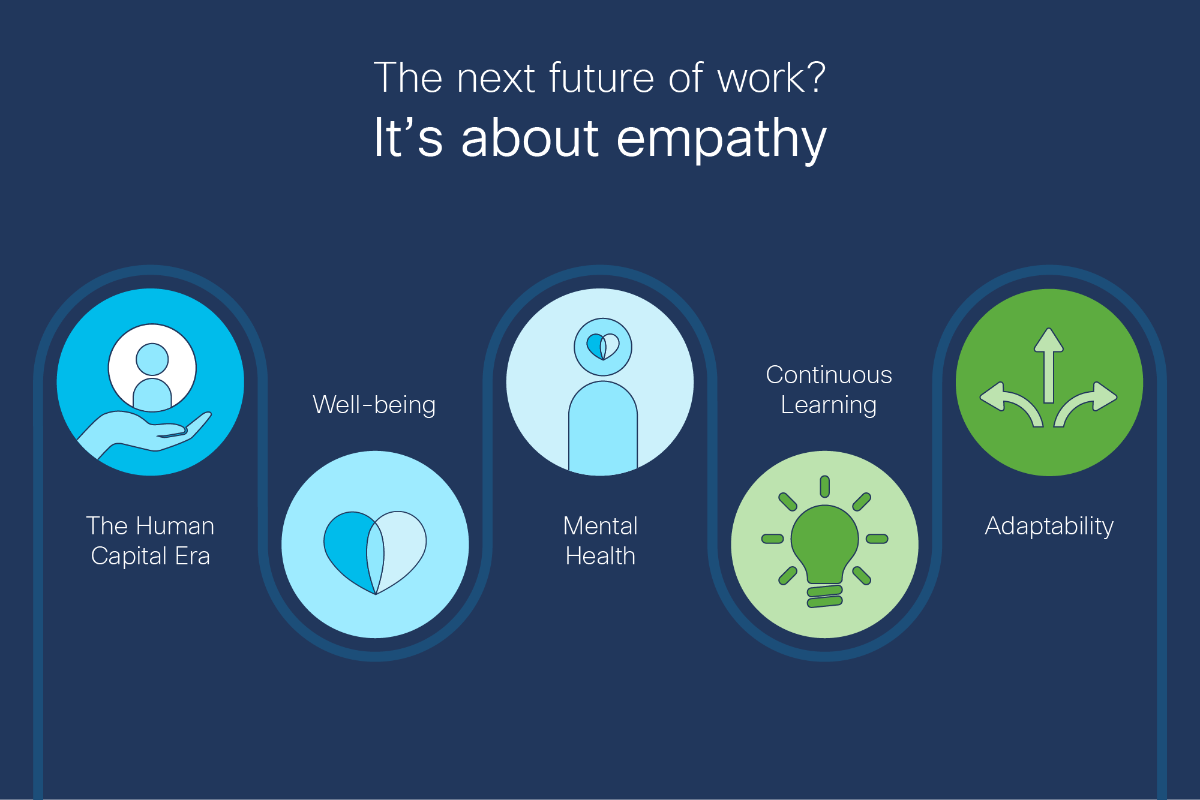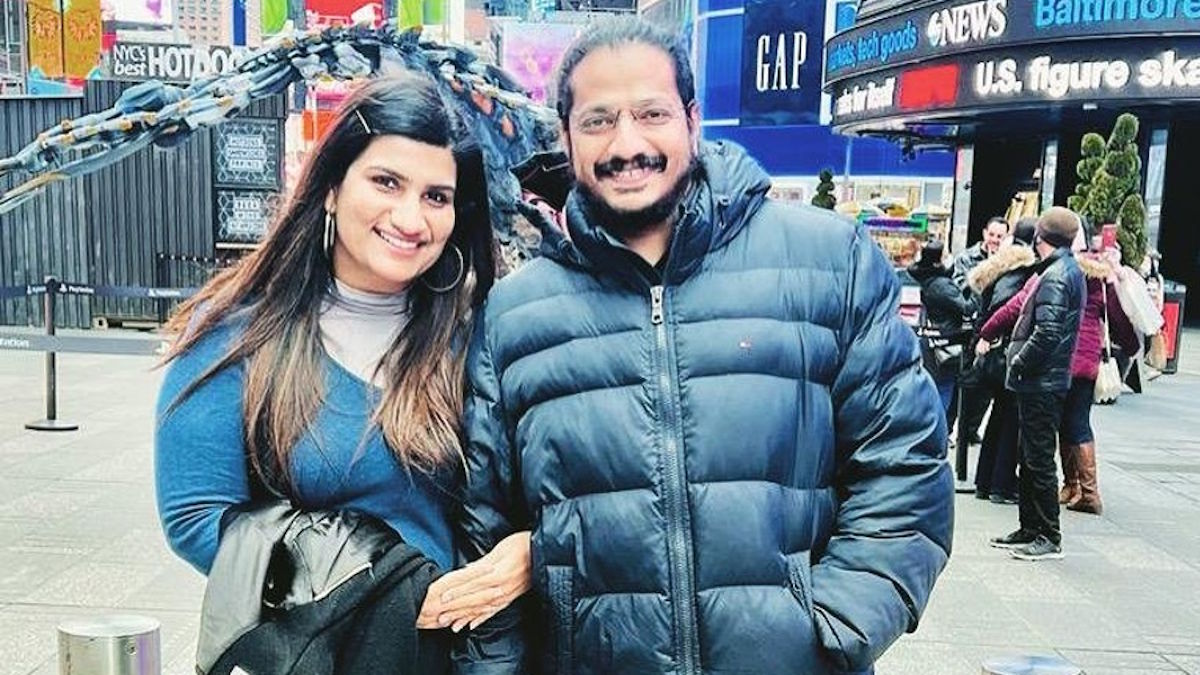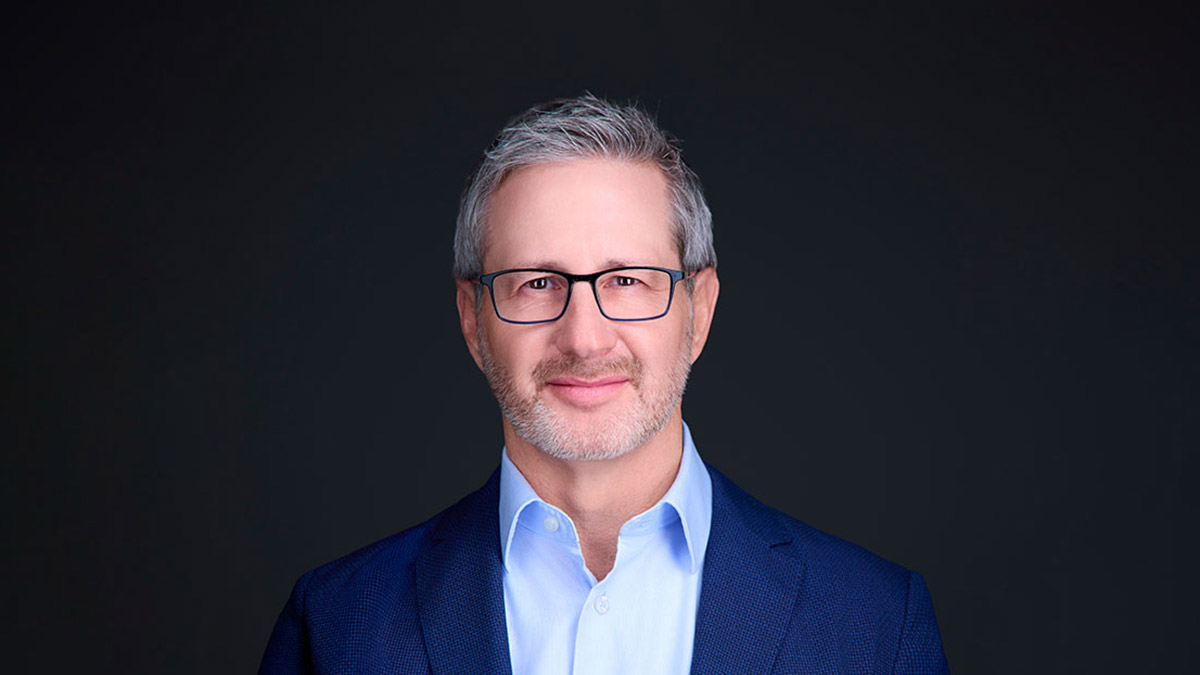The future of work arrived suddenly and unexpectedly last year, as digital technologies enabled us to adapt to unprecedented challenges.
But it wasn’t just about technology.
As we adapted to the deep challenges of the pandemic, a vision of a different kind of organization emerged.
For the futurist Heather McGowan, it was a big step toward what she calls the Human Capital era. That’s the next future of work, a time when amazing technology combines with a heightened focus on human qualities like empathy, collaboration and creativity.
“We’re entering this thing that I’m calling the human capital era,” said McGowan, who is co-author of The Adaptation Advantage. “And that is when the greatest investment you can make is in humans — not just the special 1 percent of humans, but all humans. Because the moral argument is now meeting the economic argument, in terms of how we invest in each other.”
The most successful organizations will empower these human qualities in profound new ways.
As the pandemic highlighted, digital technologies are unleashing new levels of agility and collaboration for workers. And there’s no going back. Workers will increasingly demand flexible, hybrid work models. At the same time, collaboration tools like Webex continue to grow more sophisticated, with features like AI-driven real-time translation that help to power a more inclusive future rife with new opportunities.
Organizations will need to respond in kind — with cultures that look beyond pure profit motives to embrace change, diverse thinking, and continuous learning.
“The leaders who are doing really well,” McGowan argues, “are the ones who lead with trust and psychological safety, while connecting individuals to a higher sense of purpose and individual development. They become more like coaches, instead of just anonymously driving production as in the past.”
A future built on empathy and opportunity
With the twin upheavals of the pandemic and the death of George Floyd, empathy expanded in the workplace as never before.
“Our empathy grew across a number of different dimensions,” McGowan said. “In the workforce, suddenly there isn’t a company out there without a diversity/equity/inclusion plan. And that’s a direct response to empathy and seeing something that you just can’t look away from anymore."

The pandemic — and digital collaboration tools — also forced us to view our colleagues in a more human light.
“It was a moment of transparency that brought a moment of empathy,” McGowan stressed. “We’re seeing how some folks live with their kids running around. Others struggled with either anxiety or depression.”
For leaders and organizations, these kinds of stresses demand a higher level of connection, whether workers are in the office next door or on another continent.
“Today if you’re not worried about the well-being of your team,” she added, “you’re not worried about the success of your team. We need to be concerned about folks’ mental health and have the empathy to think about what a person’s going through. Maybe she’s got three kids at home. We’ve already seen a huge exodus of women from the workplace because we don’t have sufficient childcare, and that’s a huge loss of human potential.”
See also: Mental health priorities for employees and leaders remain steadfast at Cisco
Like any futurist, McGowan is excited about the next generation of technologies, and the promise of AI, IoT, and other emerging technologies to further transform our lives.
“What we saw during the pandemic was human adaptation,” she said. “We were forced to do it and we did it really well. But now as we layer in even better technologies, we’re going to see some really game-changing stuff.”
Connecting the unconnected and eliminating barriers to opportunity like language and geography will be critical, she believes.
We have the opportunity to reach out and elevate different parts of the world, tap into talent, and provide education to places in the world that didn’t have those options before. And that’s better for all humanity.
Augmenting humans, to learn, grow, and adapt
As technology continues to evolve, it will become seamless in our lives, while replacing many rote tasks. The best technology will augment humans, freeing us to be more, well, human. But in a fast-changing world, the skills learned at university can be outmoded in a few short years. So, work cultures that promote continuous learning will win.
“It’s not that technology’s not important,” she explained. “We just have to get better at learning it and then unlearning it as things change. We really need to go deep on those human skills that we’ve tended to ignore.”
In McGowan’s view, successful company cultures will promote learning as a continuous journey.
See also: CNBC @Work: Tech & people are fueling inclusion
“In this new augmented age, tech skills depreciate; human skills appreciate,” she stressed. “So, if you’re using a tool like Webex that does translation and transcription, you’re collaborating with that tool, it’s augmenting your capabilities and your ability to learn. And your ability to learn and adapt becomes much more important than any store of set knowledge. We need depth of expertise, for sure. But we also need learning agility and fluidity.”
Again, the organizations that support this evolution will be more competitive, win the war on talent, and even have more fun along the way. Constant change, after all, is hard. But learning to create, collaborate, and support one another under fast-changing conditions — and for a higher purpose — is stimulating and rewarding.
McGowan has no illusions about the struggles of the past year — or the challenges to come. Yet she still calls herself a “belligerent optimist.” And even believes that hybrid work will bridge some of the sharp divides in America and across the world.
“Hybrid work will have a great impact,” McGowan concluded. “People tend to be more liberal in cities and more conservative in the rural communities. But if we start changing our settlement patterns with hybrid work, we might tear down some of the walls that unnecessarily built up between urban and rural folks. We have much more in common than we realize, and we need to be neighbors.”
#####
For further reading:
The future of work, phase two: what to expect
The wireless future: ‘smarter, better, faster’




